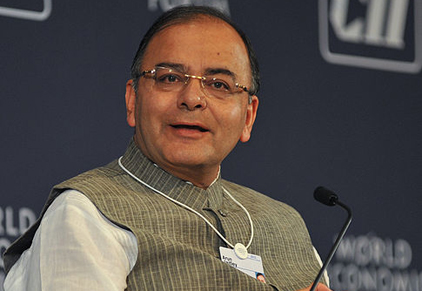
Govt proposes Bill to tax black money
As a step taken in the same direction, Union Finance Minister Arun Jaitley introduced the Taxation Laws (Second Amendment) Bill, 2016 (‘the Bill’) to amend the provisions of the Act to ensure that defaulting assessees are subjected to tax at a higher rate and stringent penalty provision.
According to the bill, the Government should give the tax defaulters an opportunity to pay taxes with heavy penalty and allow them to come clean.
In this backdrop, an alternative Scheme namely, ‘Taxation and Investment Regime for Pradhan Mantri Garib Kalyan Yojana, 2016’ (PMGKY) has been proposed in the Bill.
The declarant under this regime shall be required to pay tax @ 30% of the undisclosed income, and penalty @10% of the undisclosed income. Further, a surcharge to be called ‘Pradhan Mantri Garib Kalyan Cess’ @33% of tax is also proposed to be levied, read a government statement.
In addition to tax, surcharge and penalty (totaling to approximately 50%), the declarant shall have to deposit 25% of undisclosed income in a Deposit Scheme to be notified by the RBI under the ‘Pradhan Mantri Garib Kalyan Deposit Scheme, 2016’, read the statement.
This amount is proposed to be utilised for the schemes of irrigation, housing, toilets, infrastructure, primary education, primary health, livelihood, etc., so that there is justice and equality.
The Centre on Nov 8 announced to ban Rs 500 and Rs. 1000 currency notes.
All old 500-and 1,000-rupee notes must be deposited in banks by the end of the year.
Support Our Journalism
We cannot do without you.. your contribution supports unbiased journalism
IBNS is not driven by any ism- not wokeism, not racism, not skewed secularism, not hyper right-wing or left liberal ideals, nor by any hardline religious beliefs or hyper nationalism. We want to serve you good old objective news, as they are. We do not judge or preach. We let people decide for themselves. We only try to present factual and well-sourced news.







